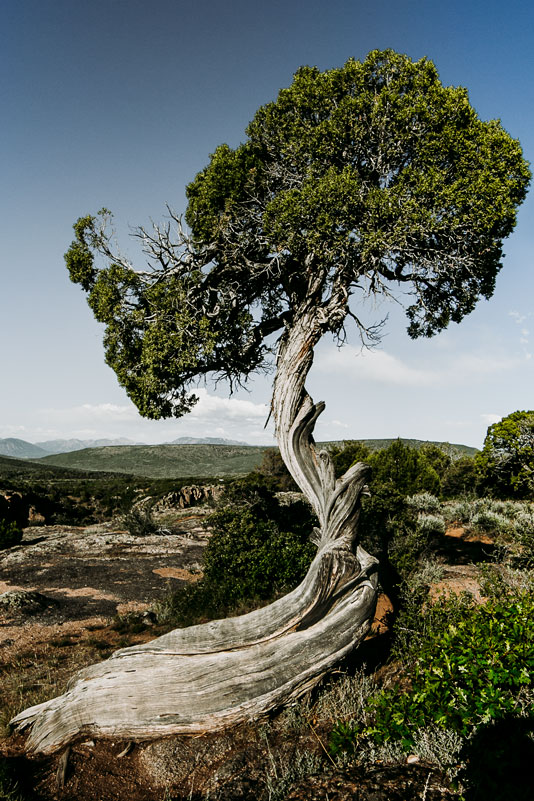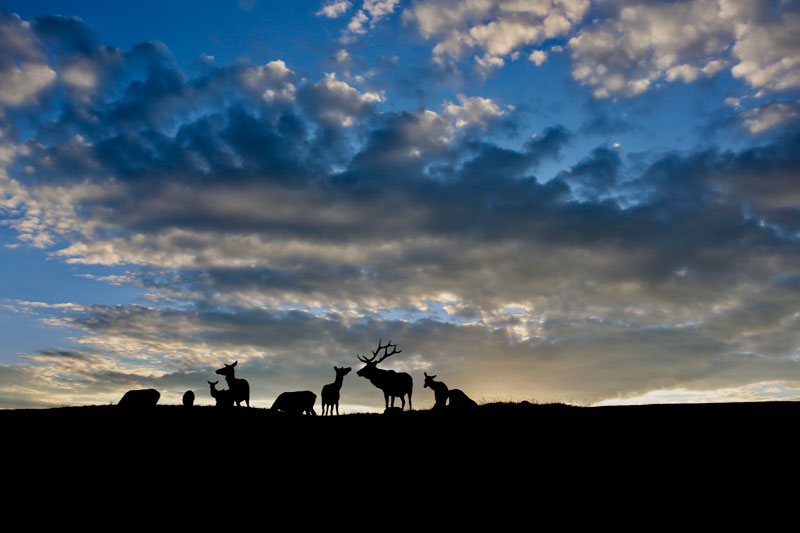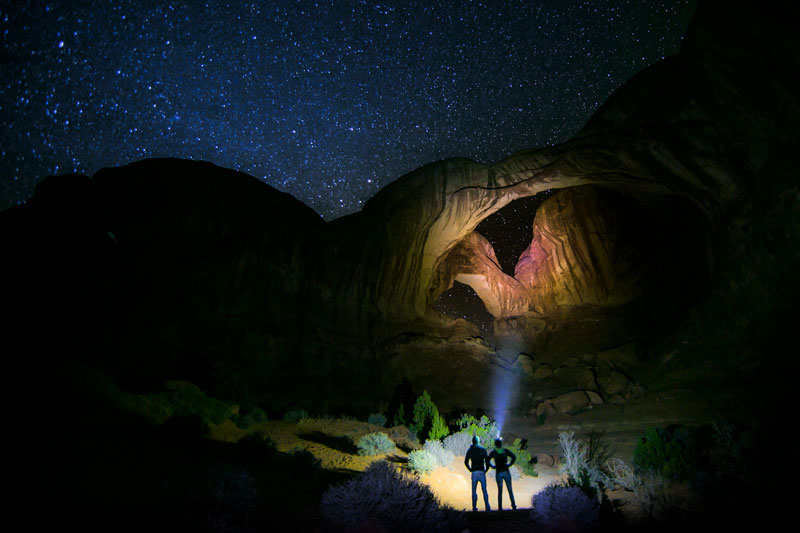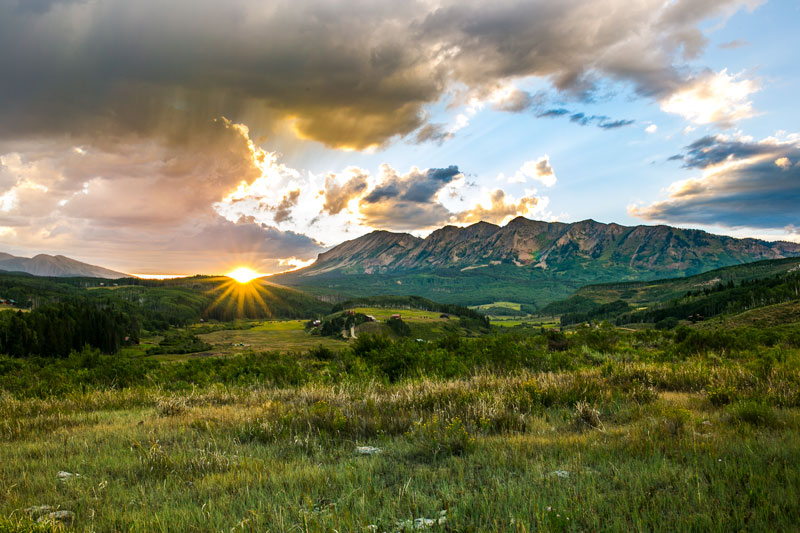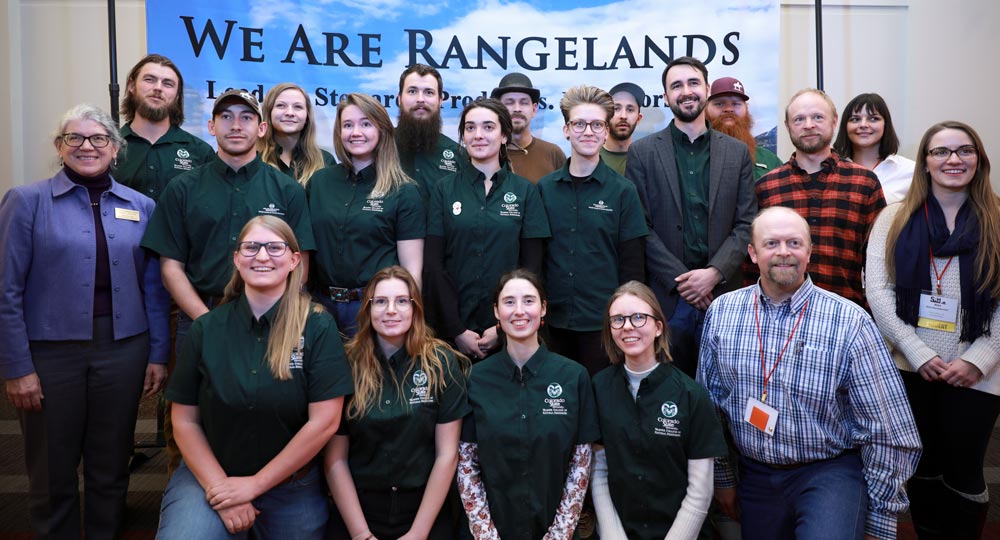
It was a memorable year for Colorado State University rangeland stewards at the 2019 Society for Range Management Meeting.
Troy Ocheltree, an assistant professor in the Forest and Rangeland Stewardship department received a prestigious teaching award in front of rangeland peers and a large entourage of cheering CSU students, alumni and faculty. Many of the current 13 undergraduate and six graduate students in attendance achieved high honors of their own.
Early Career Undergraduate Teaching Award
Ocheltree received the Early Career Undergraduate Teaching Award from the Range Science Education Council. A collective of more than 40 representatives from other colleges and universities with rangeland programs evaluated award submissions and chose Ocheltree as the winner.
“It’s really great to see that all the effort you put in works and people do see that,” he said. “Being recognized as an effective teacher definitely encourages me to continue focusing on identifying and maximizing those strengths.”
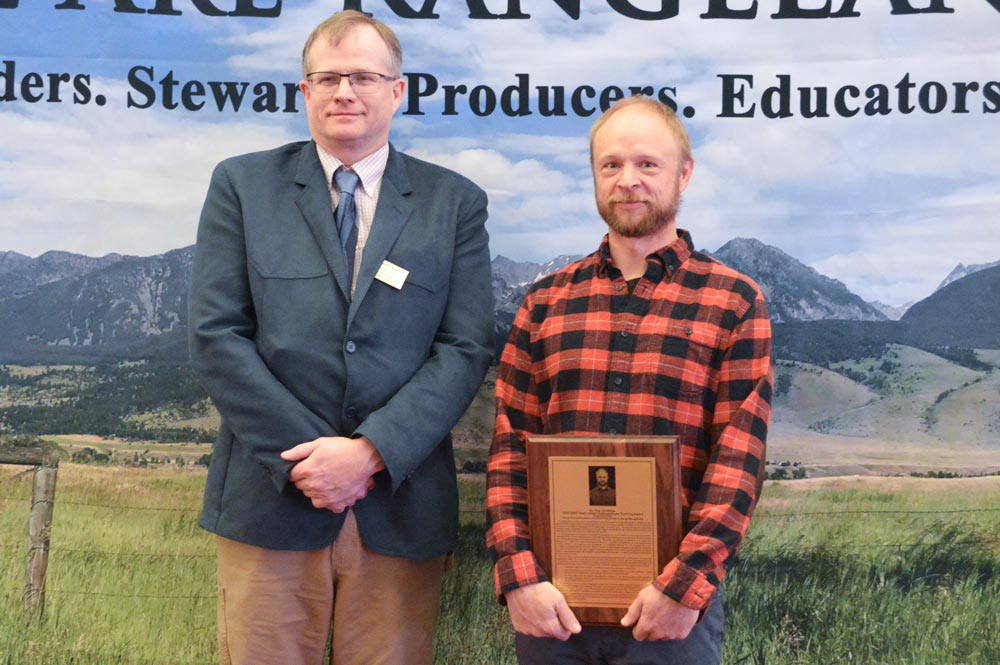
Ocheltree is the first to say those strengths in his teaching philosophy may seem somewhat unconventional. He prefers being lively during lectures and labs because when he’s having fun he feels that he teaches better. Fun in this case means open conversations and dialogues with students about the material.
“I’m a puzzle person and science is a puzzle,” Ocheltree explained. “Having students start seeing that and making connections as they work through that puzzle is really rewarding.”
Senior Cody Mortell found those ecological connections while taking one of the award winner’s courses. He provided a letter of support for his instructor and wasn’t surprised by all the additional student endorsements he included.
“Everyone I asked was very excited to tell me all about how much they enjoyed having Troy as an instructor,” he said. “I think that says more than anything I could come up with.”
Rangeland Undergraduate Student Achievements
Mortell received his own individual recognition with the top Undergraduate Range Management Exam score out of 169 students. The test comprised 92 questions on topics across rangeland ecology. Even though the test was finished within a two-hour time frame, Mortell and the team spent countless hours preparing.
“Studying for this exam has been a fairly big part of my life for the last year and a half, and I’m still in a bit of disbelief that it paid off so well,” Mortell said.
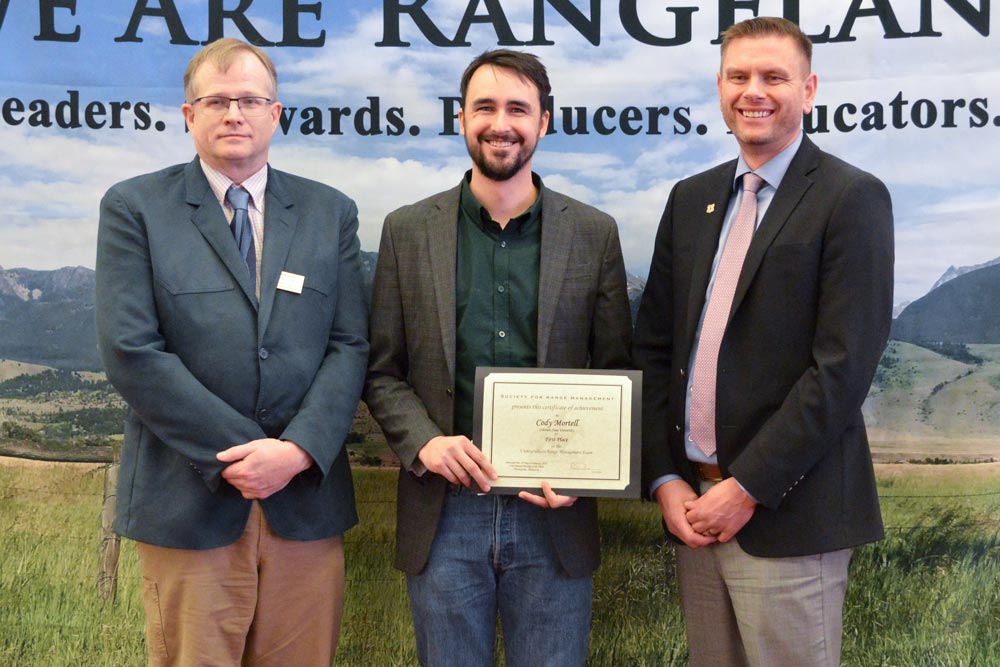
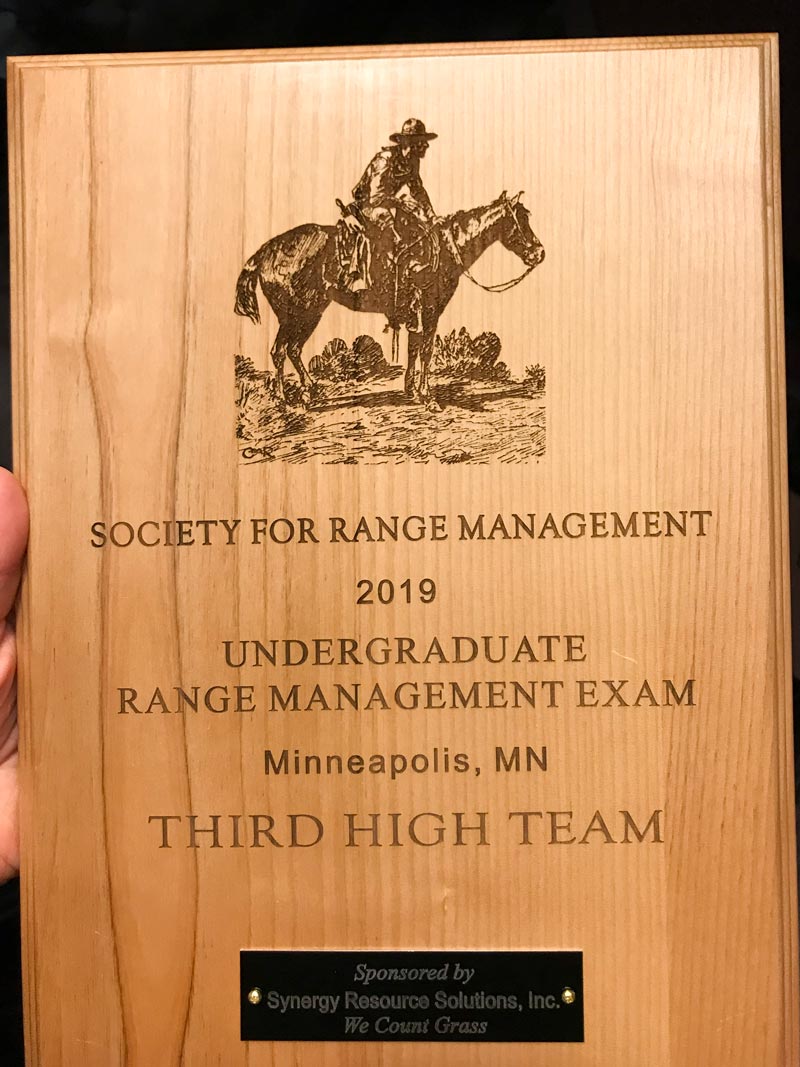
Mortell and other students met FRS associate professor Paul Meiman for study sessions two or three times a week, every week, for that year and a half. “Paul prepared me for the exam, plain and simple,” said Mortell. “He put in just as much time coaching, so I feel like I kept up my side of the bargain.” The efforts of this cohesive group were realized with an overall third-place team finish.
Alexis Emslie received additional recognition for her non-academic talents. This CSU junior won first place in four out of the five SRM Photo Contest categories: plant, people, wildlife and landscape.
“These photographs are some of my favorite and I believe they encompass how I see the world,” she noted. “They are visual reminders that I’m heading in the right path for my education.”
Emslie has been an avid photographer for several years and found that this creative outlet showed her passion for all the individual elements found in rangeland ecosystems.
Rangeland Ecosystem Science Graduate Student Achievements
Two FRS doctoral students received the top two honors in student oral presentations. Jasmine Bruno presented an evidence map on the state and gaps of literature relating to future directions for North American rangeland social science. This award was a great follow-up to winning first-place in poster presentations for her research last year.
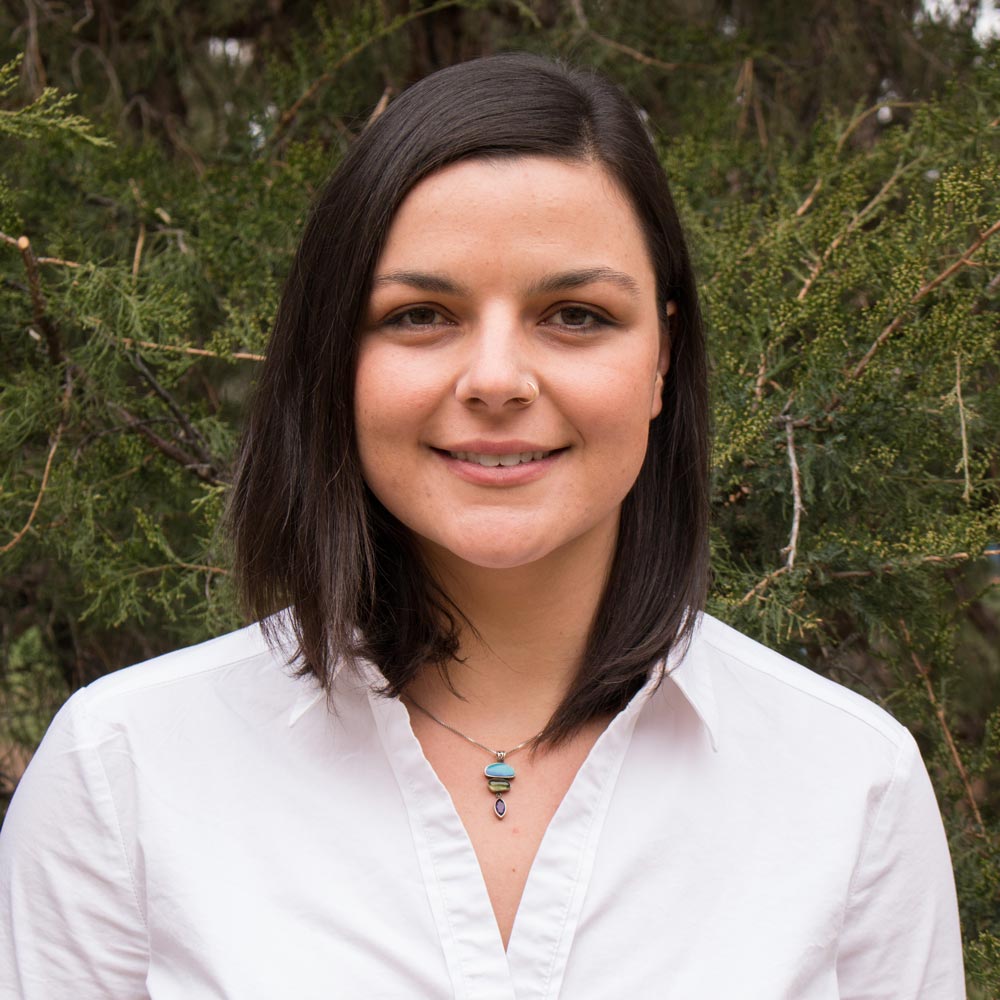
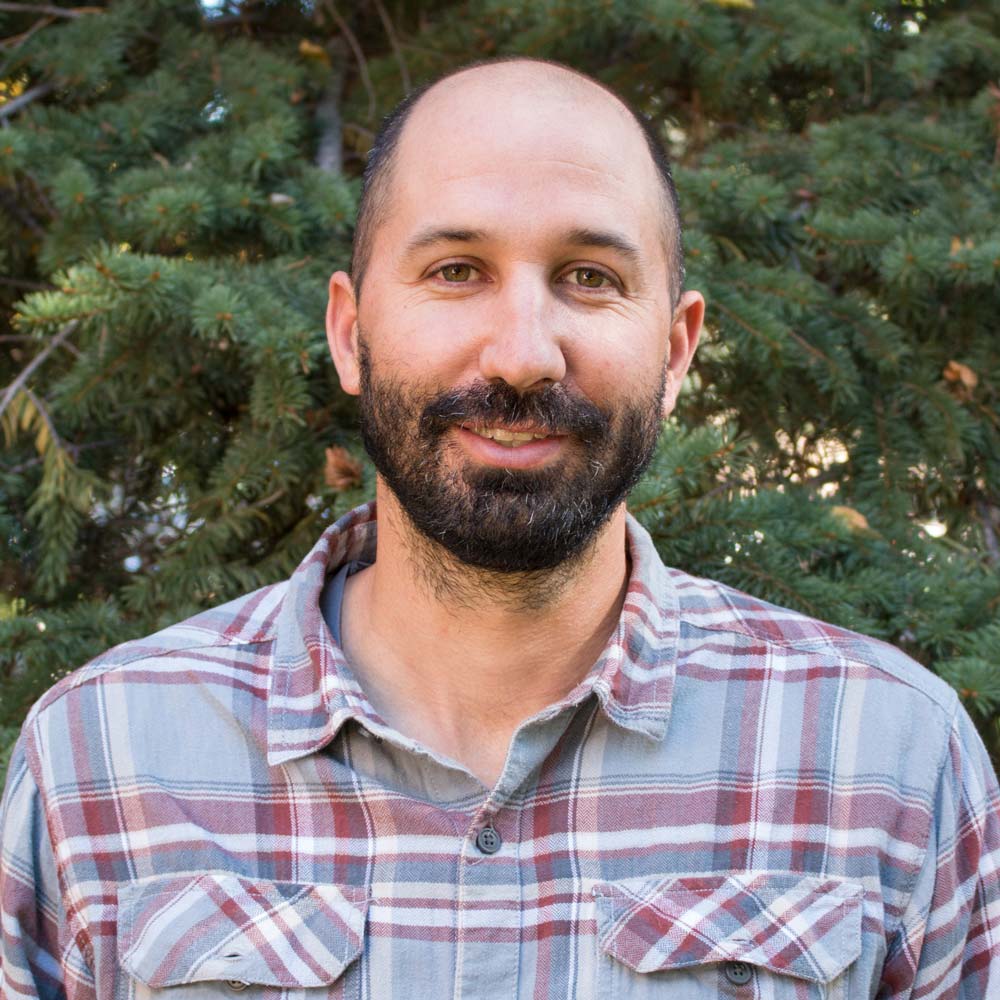
“Colleagues and peers where excited to see the completed work and the impacts of their support in 2018,” Bruno noted. “This research is definitely a collaborative effort in the rangeland social science community.”
Second place winner Kevin Jablonski gave his presentation in a session focused on new tools for understanding livestock foraging behavior. While other speakers concentrated on global positioning systems, Jablonski shared his research on the possibilities of using agent-based modeling to understand the spatial and temporal scales of ecological processes.
“The mix of young and established range scientists that we have now at CSU and in Fort Collins is an exceptionally dynamic and diverse group and I feel very lucky to be learning among them,” Jablonski said.
The University’s strong showing is the result of long-term collaborations that students, faculty members and partners have engaged in with the rangeland program.
